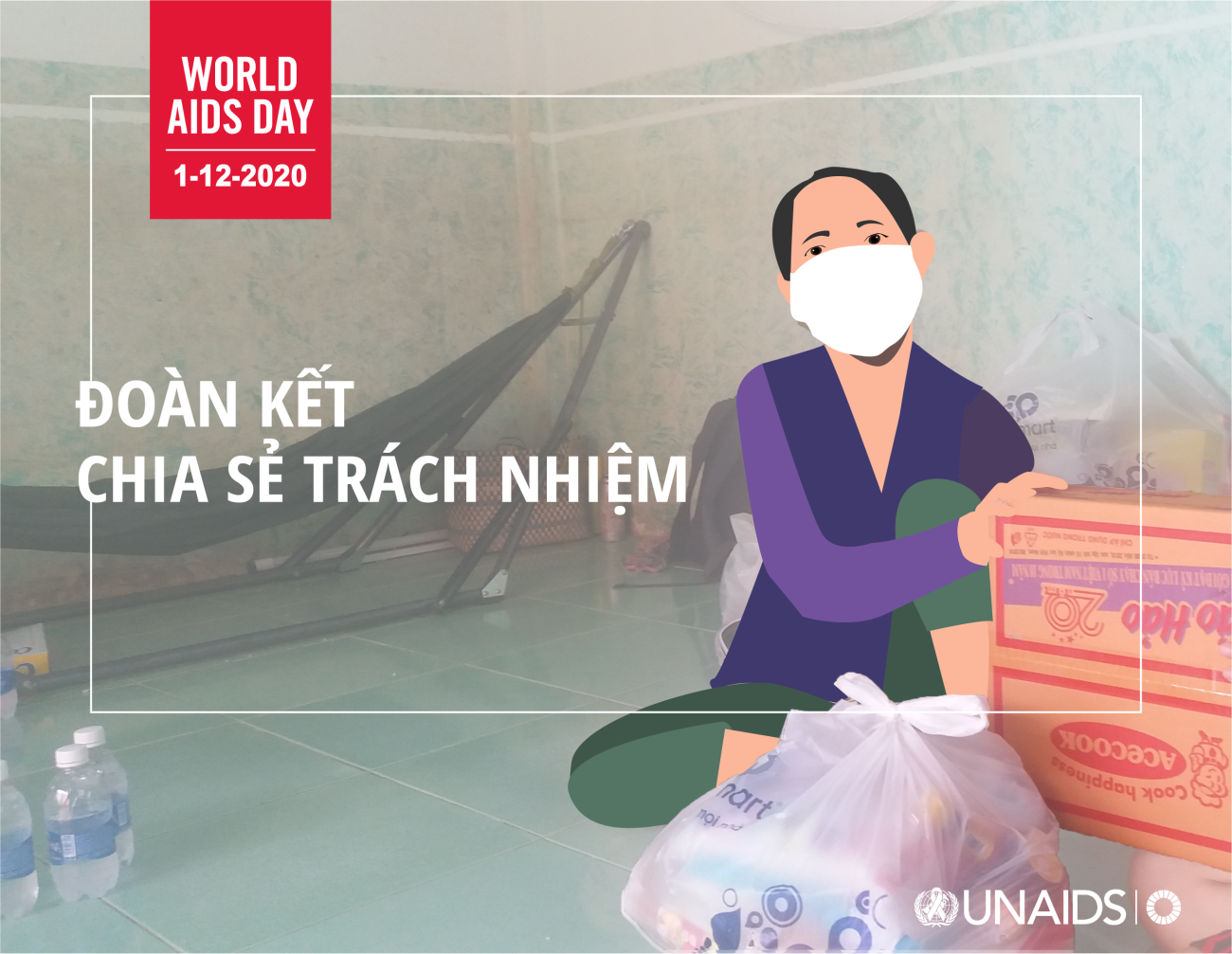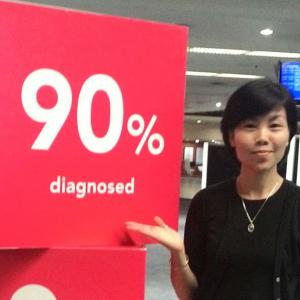“During the COVID-19 lockdown, it has been too difficult to get clients,” said Mai (not her real name), a 48-year-old female sex worker from a province in the Mekong Delta. Since the social distancing restrictions, the livelihood of Mai has been devastated by the lockdown. The post lockdown economic recession due to COVID-19 in Viet Nam has also resulted in a drastic cutdown of her income.
Losing their parents and being abandoned by relatives at a young age, Mai and her younger sister grew up in the face of hardship. For over 10 years, both Mai and her younger sister have been people who injected drugs. In 2012, she found out her positive HIV status. Since then, she has enrolled in antiretroviral therapy (ART) and in recent years in methadone maintenance treatment.
“For many years, I have been selling lottery tickets and sex for a living. Before the pandemic, I got at least 3 clients per day. After the social distancing restriction, there was no client at all. My income once dropped to zero during the lockdown. I fretted about the cost of groceries and food. I could not even afford to pay the rent.” said Mai, living with hunger and the risk of losing her shelter during the lockdown.
COVID-19 crisis has exacerbated the challenges faced by people living with HIV, women, and girls and HIV key populations. The crisis has widened the social and economic inequalities that increase the vulnerability of marginalized groups to HIV.
A survey, jointly conducted in May 2020 by the Viet Nam Network of Self-Help Groups of Sex Workers (VNSW) and UNAIDS, shows that the COVID-19 pandemic has significantly affected sex workers’ livelihoods. Struggling to pay rent for their shelter and buy food, some sex workers even needed to borrow money from the black market at a high-interest rate.
To help mitigate the hardships they faced during and after the lockdown, UNAIDS made a donation to VNSW to deliver cash and daily necessity package to the affected sex workers.
In the package, Mai received instant noodles, rice, seasonings, cooking oil, and other groceries. “These goodies can support me for weeks and save some of my money. I appreciate the help a lot. Especially I feel that I am not on my own anymore.”
Mai became aware of VNSW through its outreach and STI screening support in the province last year. She could then benefit from free sexually transmitted infections (STIs) check-up, usually provided at a high price for her income. Community-based organizations are essential in delivering STIs prevention measures and healthcare protection for HIV key populations.
“We organize regular visits to our members CBOs in different provinces to provide capacity building and healthcare support that we managed to mobilize funding for,” said Ms. Do Thuy An My, chairwoman of the VNSW network. “During the outbreak of COVID-19 earlier this year, my CBO was also able to mobilize daily necessity support from a local religious establishment for sex workers. We also designed and managed together with a small saving initiative so we can be better protected in time of difficulty.”
The colliding HIV epidemic and COVID-19 pandemic have been a wake-up call for all of us to contribute to achieving healthier societies with solidarity. The resilience and solidarity of the HIV key population community are instrumental in ensuring the sustainability of livelihood and access to sexual and reproductive health and HIV services for people most in need.
This #WorldAIDSDay, join the fight for the right to health for all! adobe.ly/3khIIeS




